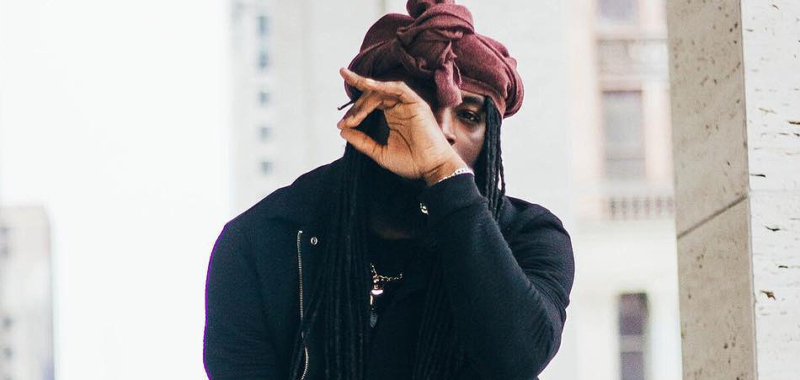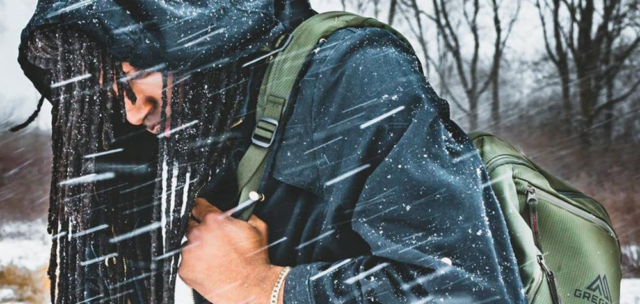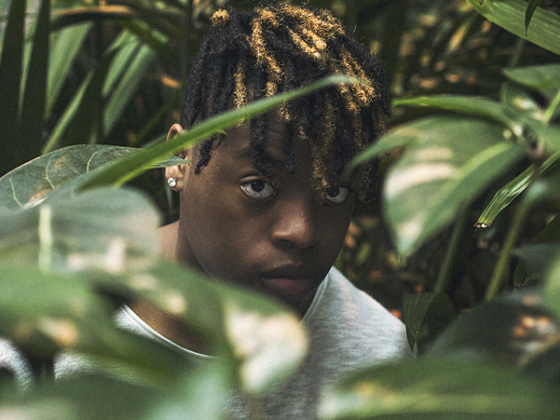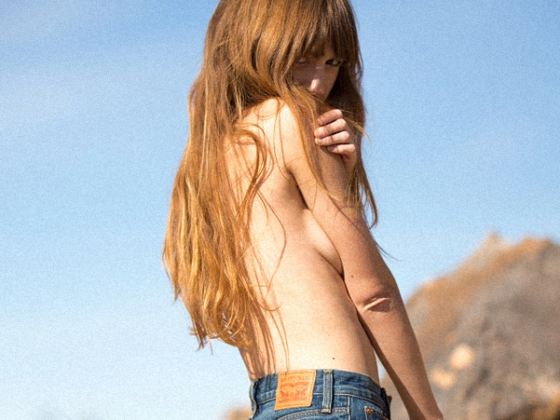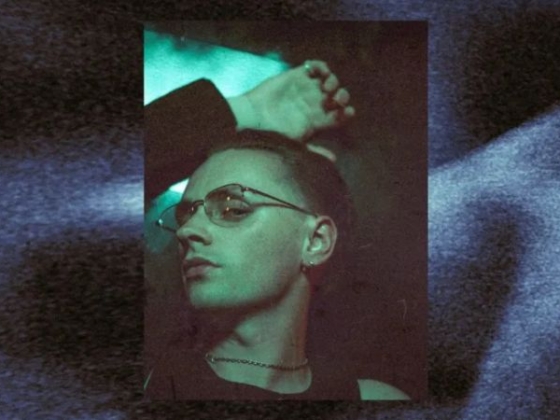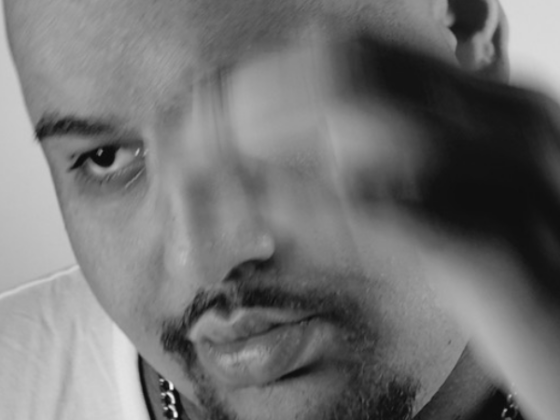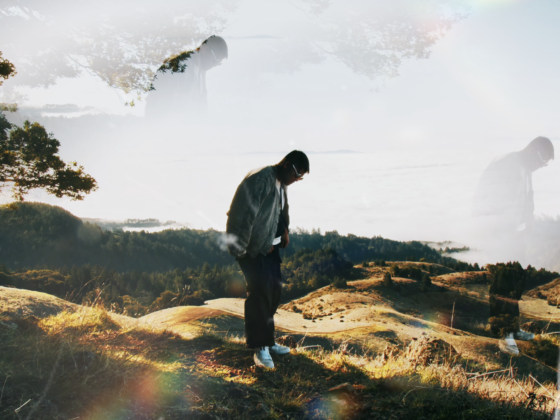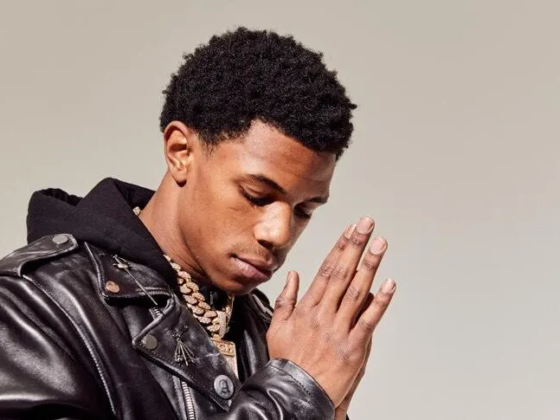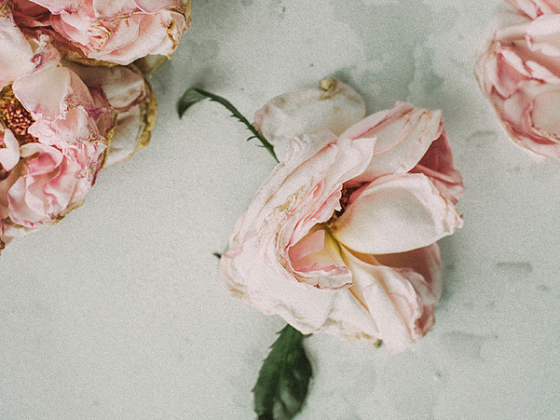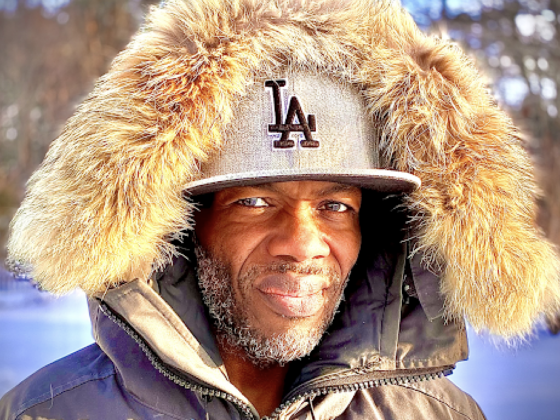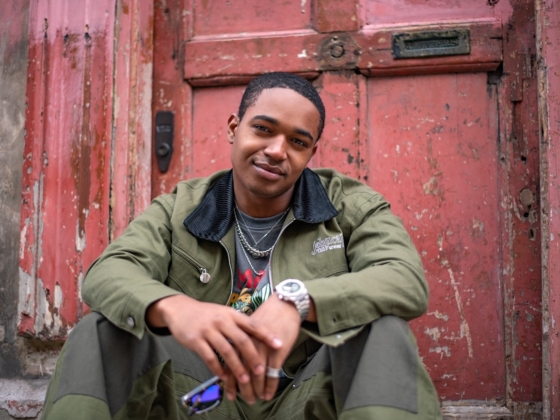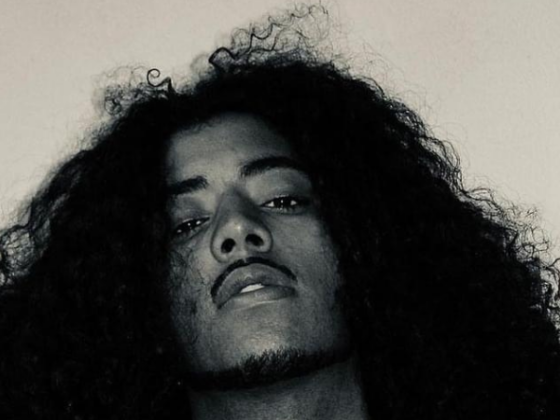When Racine, Wisconsin rapper, Rob Hicks explained he was shy in high school, my jaw hit the floor. Interviewing an artist is an awesome experience and the prep alone gives a journalist a completely new outlook on their subject. But after hours of researching and listening to his latest EP, Paradise in Hell, about a trillion times, "shy in high school" is not what I picked up. His delivery is fierce, explosive and direct. He doesn't mince words when it comes to his music, he's calculated. And yet, here was Rob, at age 25, saying he didn't take rap seriously until after high school and didn't start rapping in a studio until four years ago. Here was Rob, relaxed on the phone, explaining that as a kid, he was too shy to show people his music.
After speaking with him, however, the shyness makes sense. It's not that he's quiet, but rather, he's confident. He possesses an air about him that pays no mind to bullshit. On the phone he's a cool, mellow and nice guy, but on a track he sounds like he could obliterate anyone standing in his way. People in his hometown don't fuck with him? So what, he says, it doesn't matter. He knows he's dope, so why should it matter if you don't get it? It shouldn't and it doesn't.
With an attitude like that, there is little that can slow Rob down. He poured himself into Paradise in Hell and the result is a well-crafted EP that shows the fire behind his calm, casual demeanor. Check out our full conversation below, lightly edited for clarity.
——
EARMILK: What started you down the road to becoming a rapper?
Rob Hicks: The roots go back to back in the day when I was like 8 or 9, my Dad was a DJ. I was always exposed to music because of that. I didn't start taking music seriously until after I graduated high school, I'm 25 now, so it's been six years since I started taking it seriously. And then I didn't get into recording studios until I was 21 years old just because I didn't feel the need for it. But, once I met my manager, things starting falling into place. That's really how it happened [laughs], that's it.
EM: So it wasn't until after high school you took it seriously. What happened after high school that made you want to go for it?
RH: I was always a reserved person like in high school I was extremely shy, and never really talked to people. So being out of school, I don't know, I just came out of my shell. I would always write raps in classic when I was supposed to be taking notes and whatnot, but I never really was a social person. I was too shy for people to hear my music. But after high school, I didn't care anymore. I knew I was talented and just didn't care anymore.
EM: That's pretty awesome because honestly, I never would have guessed you were a shy guy after listening to your music. You have a pretty explosive delivery and lyrics [laughs], that's pretty unexpected to hear.
RH: [laughs] I appreciate that. A lot of people say that actually, but I'm extremely reserved and chill.
EM: So let me ask you this, how did growing up in Racine, Wisconsin influence your music?
RH: I mean, it's obviously harder because Racine has never had a breakout artist that people could follow a blueprint from. I feel like I'm the furthest anyone has made it from Racine, as far as the music scene goes. It's weird to me because not only do I have to find my way into the music scene, but I have to lead by example because of that too. It's just weird. There aren't any household names where I'm from but if you go 20 miles North of where I'm from, to Milwaukee, everyone's poppin over there. So it's weird because I'm next door to Milwaukee and Chicago, but I'm in the middle and nothing is going on here.
EM: That's got to be a tough position, but also kind of dope because you're setting up the blueprint for your town. That's a cool thing to be known for.
RH: Yah, but I don't think people have noticed it, to be honest with you. At least not people from Racine. The local scene is strange because no one supports you locally, but I've always said I appreciate national exposure way more than local support. I've been getting a ton of press this past year which is weird because everyone listens to my music outside of Racine, but no one, well I'm not going to say anyone, but there aren't as many listeners in my hometown as there are in other places.
EM: Well, they'll come around soon right!
RH: If it does, it does. If not, that's fine too; I don't seek acknowledgment from anyone. So, it is what it is.
EM: One of the things that impressed about you is that you have an incredibly unique sound which is a difficult thing to have as a young artist. How did you stumble on your own style, can you tell me a bit about that process?
RH: I actually rebranded myself and my sound. So back in 2013-2015, I was apart of a collective called SOS. When I left them, I met my manager and him and his team were extremely hard on me. I always knew I could rap, but my sound, my voice, and the way I structured songs just weren't there. So I had to take some time off from the music to find my sound and my voice. Like, find my niche, you know? I didn't release music for a year and a half, maybe two years honestly. November 2016 is when I released my first song after rebranding my sound, which was the "Perception" track. Since then I've stuck to that sound and that vibe of the music, and it's been work. So I don't feel like I need to switch up.
EM: Ya, it sounds great. It's not often somebody finds their lane that quickly. So let's talk about the EP for a quick second, why the title, Paradise in Hell?
RH: It came about weird. I always had that title in my head. When I was taking that break, I knew I was going to call my first project Paradise in Hell; it was just a matter of forming and creating music that fit the vibe and title of the album. And at the end of the day, I feel like "Paradise in Hell," means making the best out of really really bad situations. Whether you're going through money issues or depression or if you're living in unstable living conditions, you have to make the best out of everything and keep going on and try to succeed. I like to call it a project about lust, wrath, and sorrow. I chose those emotions because everyone goes through times when they're extremely angry, have sexual urges or they become very sad off of depression. Everyone goes through emotions like that, and I felt that this album would be something people could relate to while keeping that "Paradise in Hell" vibe going. It really just means making the best out of messed up situations.
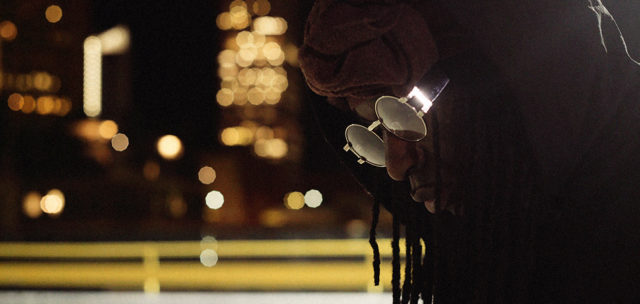
EM: On the song "Ghost," you have this one line where you say, “Not concerned with the brand on my jeans, man id rather put away all these bands for my seed.” That's a huge lyric, especially because everyone these days is living like, "you only live once, etc, etc. etc." Can you tell me where that outlook came from?
RH: It's how I live. I've always been raised to not be the most materialistic person in the world. I consider myself sort of fashionable, but fashion isn't my focus, my focus is taking care of my family and music. Everything else is just luxury; I don't need it. It's nice to have, but it's not important. I've always had that mentality towards life.
EM: That's great, as a young and talented artist, I feel like you have a lot of sway when it comes to influencing younger kids and younger generations, so it's dope to hear you putting lines like that in your music. I respect that.
RH: Thank you, I appreciate it. Ya, it's just some real stuff, I guess.
EM: One of the other crazy things I noticed about that project is that almost every song has a different sound, sonically speaking. Weirdly, it's almost like the thing that connects all the songs is that each one is so unique. Did you consciously do that? Or did it come together that way when you were putting the songs together?
RH: Honestly, it goes back to what sort of artist I am. When I make albums or even singles, I approach it as an individual project. So off the top, every song is going to sound different any other song you'll ever hear. I don't know. I think it correlates together because I'm that artist who's making every single song, but every song sounds different. But, again, that's what makes it correlate that I'm the type of artist to make music like this. I think that's the way it is. I'll always approach music like that. When you record music, it's like art; you can do whatever you want with it. I feel like it's my job to make people remember something, and I feel like you can't do that if you're making music that sounds like everything else, so I try to make music that sticks out.
EM: Totally, I think that especially these days with so many artists coming out and so much more music out there, you need to find your lane and make some crazy shit to be able to stand out.
RH: Ya, I feel like it's easy to follow waves and shit but when you're coming up on your own and doing everything your own way, you have your own sound, it makes everything that much more special.
EM: While researching for this, I read that you're working on an album, can you share any details about it?
RH: Ummm, I can share the title. It's going to be called Goodnight in Paradise. It's going to be a story where the EP leaves off. Instead of telling a story for people, it's going to be my story but with a twist on it. It's like 90% in my head, I've started recording some of it, but it's probably not going to make the album cut. It's just me putting out ideas and stuff. I don't think it will sound anything like the EP, actually. It will still have a unique and very complex feel, but as far as sonically, it won't sound the same as the EP.
EM: No release date yet, I assume.
RH: Nah, I don't like to put release dates on anything because then I have to rush and all that. I would like to have it out by Spring, but if not I'll put it out in the Summer or something.
EM: So, speaking of next year, do you have any goals or main objectives you're trying to accomplish for 2018?
RH: I don't know. I didn't set any goals for this year, and I feel like that worked to my advantage because I feel like when you set goals for yourself, sometimes if you don't reach them, you'll be disappointed. But, if you just wing it and look back on the year that you've had, you're like, "damn, I've really accomplished a lot this year." I'm honestly just going to keep going with that same approach. I don't want to think too much about different stuff and focus on music.
EM: Alright well, the only question left, is there anything else you'd like to say to the people reading this?
RH: Yeah, I appreciate that support from everybody. To those that don't know me, I'm glad that you're checking out the interview, and for those who do know, thank you for following me on the journey. And shout out to you, James, and to the EARMILK family for conducting the interview, it's been a pleasure.
Connect with Rob Hicks: SoundCloud | Instagram | Twitter

